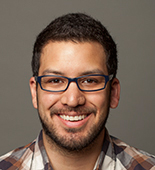This website uses cookies
We use cookies to ensure that we give you the best experience on our website. If you continue to use this site we will assume that you are happy with it.
Growing up in the Bay Area, Mario Roque ’17 experienced the effects of de facto school segregation firsthand. “There were only a handful of minority students there, and a lot of rampant racism,” says Roque, a Salvadoran immigrant who came to the United States as a child. “I remember the feeling of inadequacy, and not feeling like I belonged anywhere.”

Mario Roque ’17
Next year, he’ll be working to change that reality: Cornell Law School has awarded Roque its sixth annual Frank H.T. Rhodes Public Interest Law Fellowship, funding a two-year project in conjunction with the Empire Justice Center aimed at desegregating schools in the Rochester area.
Almost 90 percent of students in Rochester’s city school district are black or belong to other minority groups, and the area suffers from some of the most extreme levels of economic segregation in the nation when the city is compared with its whiter, well-to-do suburbs. “Several years ago, we brought a lawsuit seeking to deconcentrate poverty and overcome the de facto segregation plaguing school systems in Rochester,” says Bryan Hetherington, Empire Justice’s chief counsel. “Although we lost before New York’s highest court, it sparked an important community conversation, which has intensified over recent years. Since then, concentrated poverty has worsened in the Rochester city schools, causing academic performance to greatly suffer.”
Roque plans to tackle the problem from multiple directions: community organizing with parents from city and suburban districts and with local groups already working to reform Rochester’s education system; negotiating with school superintendents to build institutional support for systems exchanging city kids with those from the suburbs; and finally, if those efforts fail, filing suit to impose exchange programs or redraw school district boundaries.
“It becomes a matter of either putting our heads together and reaching a collective agreement, or having somebody from the top down tell us what to do,” Roque says. “We want to do it with the least amount of pain possible.”
Roque had already begun his work in Rochester this past summer, as an intern for Empire Justice. “The whole time, I was just getting to know the landscape and seeing what the legal options were and meeting with the community organizers,” says Roque. While there was never a question that he would continue with his public interest work after graduation, Roque says the Rhodes Public Interest Fellowship will allow him to proceed without the constant distractions fundraising would entail.
“What set Mario apart for the committee was basically who he is as a person and how that translates to his potential as a lawyer and advocate. His quiet, serious, yet kind demeanor sold us,” said Karen Comstock, the assistant dean for public service and one of the members of the Rhodes Fellowship selection committee. “Something inherent in Mario’s nature allowed him, at an early age, to realize that he had to change his circumstances if he wanted to lead a meaningful and productive life. And by sheer force of will, he did so. And in doing so, he developed a commitment to use his talents and good fortune to try to find justice for others facing similar challenges. We think he will be a dedicated public interest lawyer who will serve his clients admirably.”
Roque found out about his fellowship in November, shortly after his second child was born. He had been told not to expect any news until after Thanksgiving. “Dean Comstock brought me into her office,” Roque says. “She just tells me, ‘Oh, I need to talk to you for a few minutes.’ They had initially told me that they wouldn’t tell me anything until after Thanksgiving. So I just figured it was something in relation to my son.”
“I was pretty incredulous,” Roque says of winning the fellowship. “It’s huge, it’s a great feeling, but at the same time, that’s a lot of responsibility. They’re trusting me with this.”
The Frank H.T. Rhodes Public Interest Law Fellowship was established in 2010 with funding from the Atlantic Philanthropies, as well as support from Cornell Law School. The fellowships provide support for newly graduated Cornell Law students committed to public interest law, allowing them to provide critical legal services to children, the elderly, the homeless, and other disadvantaged populations. The fellowship was named for Cornell University President Frank Rhodes, a former Atlantic board member and chair, who led the university between 1977 and 1995.